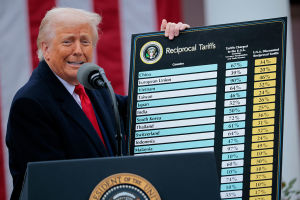Why does God allow polygamy in the Old Testament?

Polygamy, which was common in the ancient world, has recently reemerged as a trending and hotly-debated topic. Popular TV shows such as Sister Wives and My Five Wives, along with our culture’s evolving definition of marriage, have reintroduced polygamy as a topic up for discussion. For Christians, this means an important question must be answered — why does God allow polygamy in the Old Testament, and what does that mean for us today?
Bible teacher and speaker Allen Parr helps us answer this question in his video titled, Does God Support Polygamy? In the video, Parr breaks down both the unique cultural circumstances people, especially women, faced in the ancient world, and he also shares some of the clear implications from scripture that apply to us today.
So why did God allow polygamy?
It’s important to understand that the Bible was written to a culture that did not prioritize protecting or providing for women. So one possible reason Parr says that God may have permitted polygamy was actually to protect women.
“In this culture,” Parr explains, “there were a lot of men who were going off to war, and they were dying, leaving a disproportionate amount of men to women.” In the ancient world, women were generally not educated. So they relied on their fathers or husbands to provide for them. The alternative to marriage for many of these women was slavery or prostitution. Polygamy was considered a better, though imperfect, option to the alternative.
Parr goes on to describe other common reasons men married more than one woman in that culture, included continuing their family lineage if their first wife was barren and forming alliances between nations — as was the case for King David and Solomon.
These cultural realities give some insight as to why God didn’t explicitly condemn polygamy. However, just because the Old Testament never forbids polygamy outright doesn’t mean it has nothing to say on the topic.
Four ways the Bible clearly shows that polygamy was never God’s perfect will for marriage
1. In the Bible, polygamy ALWAYS leads to major problems.
Almost every story involving polygamy in the Bible resulted in strained relationships and difficult marriages. Parr says, “Each time in the Bible when a man took on an extra wife, it caused problems and actually ended up oftentimes dividing his home.”
One example Parr shares is the story of Abraham, who took a second “wife” named Hagar to continue his lineage because his wife Sarah was barren. After Hagar, who was Sarah’s servant, became pregnant, “she began to despise [Sarah],” (Gen. 16:4).
Another example Parr points out, which illustrates the problems caused by polygamy is in the first chapter of 1 Samuel. A man named Elkanah had two wives: Hannah, who was barren, and Peninnah, who had children. Peninnah mocked Hannah because she was barren and “provoked her till she wept and would not eat.”
2. The Bible defines marriage as one man and one woman.
While the Old Testament never expressly condemns polygamy, God does make His defining standard for marriage known from the very beginning of the Bible. As Parr says, “If we look at the original institution of marriage, it is crystal clear that it is the joining together of a man and woman (Genesis 2:24). And so anything outside of that original intent cannot be considered God’s perfect will.”
3. Don’t confuse God’s permissive will with God’s perfect will
It’s important to remember that the examples of polygamy we read in Scripture are “Biblical narrative.” In Biblical narrative, the authors rarely offer commentary on what they write. Instead, they tell the story as it happened and allow the readers to draw their own conclusions. So, as Parr says, “Don’t confuse certain things that are being described in the Bible as if God has prescribed it for every single Christian.”
The Bible lays out a clear standard for marriage in Genesis, chapter two. Then in subsequent passages, it tells stories of people who fell short of those standards. Just because God didn’t strike them down doesn’t mean He condoned their actions, which leads to the final point.
4. God uses imperfect people without endorsing their actions
God’s patience is not permission. Throughout Scripture, God uses imperfect people in powerful ways. That doesn’t mean He didn’t care about their sinful actions, but it does mean that He was patient and gracious with them just like He is with us.
Parr closes with this thought: “Just like God was patient enough to use and bless men who took on extra wives, which was clearly outside of God’s will, in the same way, God is patient to use us in spite of our sin.”
LightWorkers’ mission is to create engaging, uplifting and inspirational content that breaks through the clutter, building a community of sharing and igniting a movement in the real world that motivates people to celebrate and share the good all around them.




























